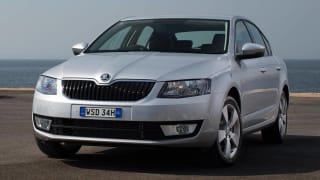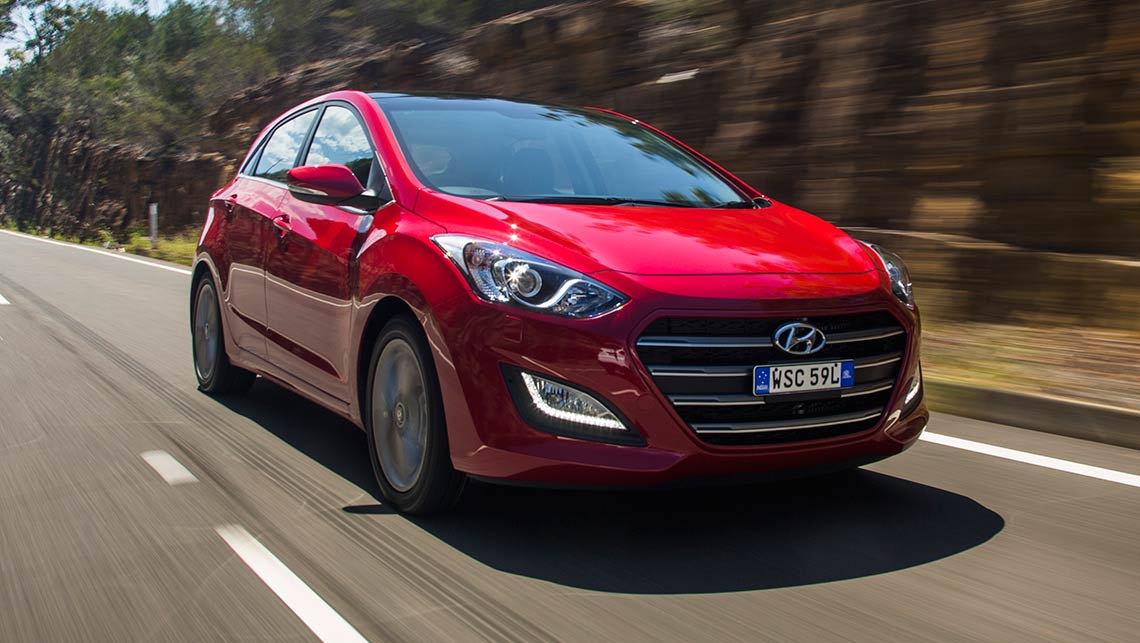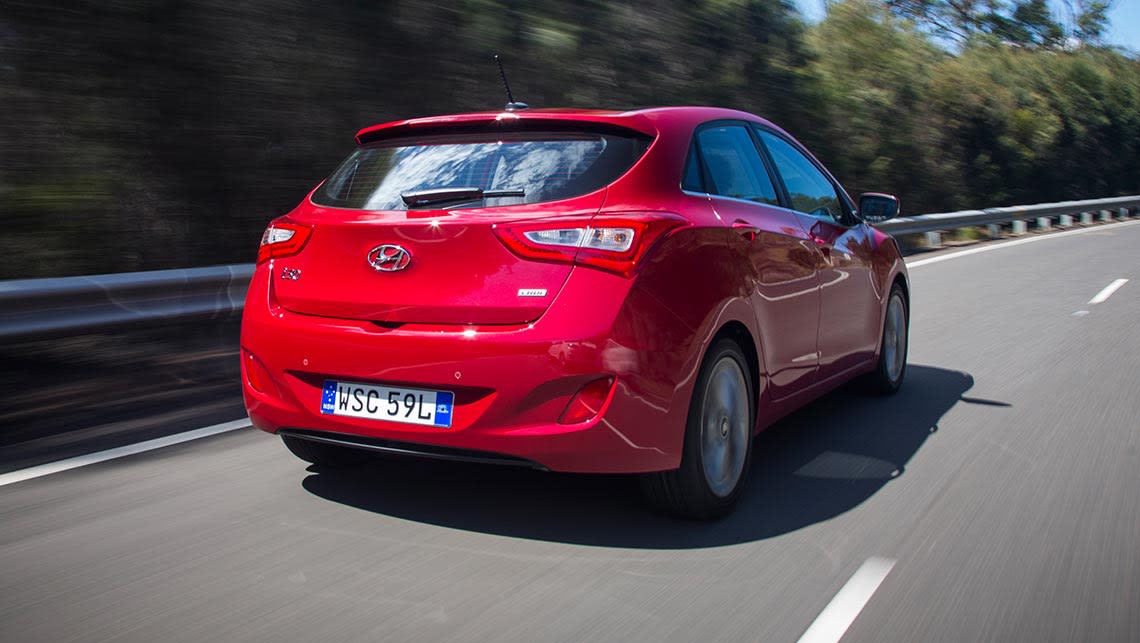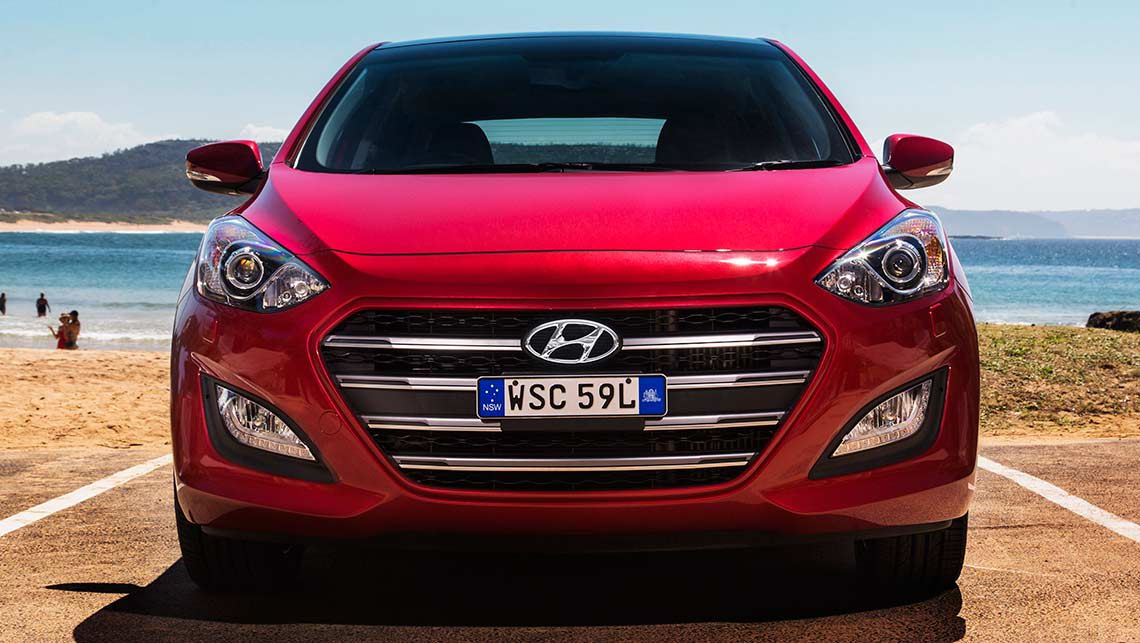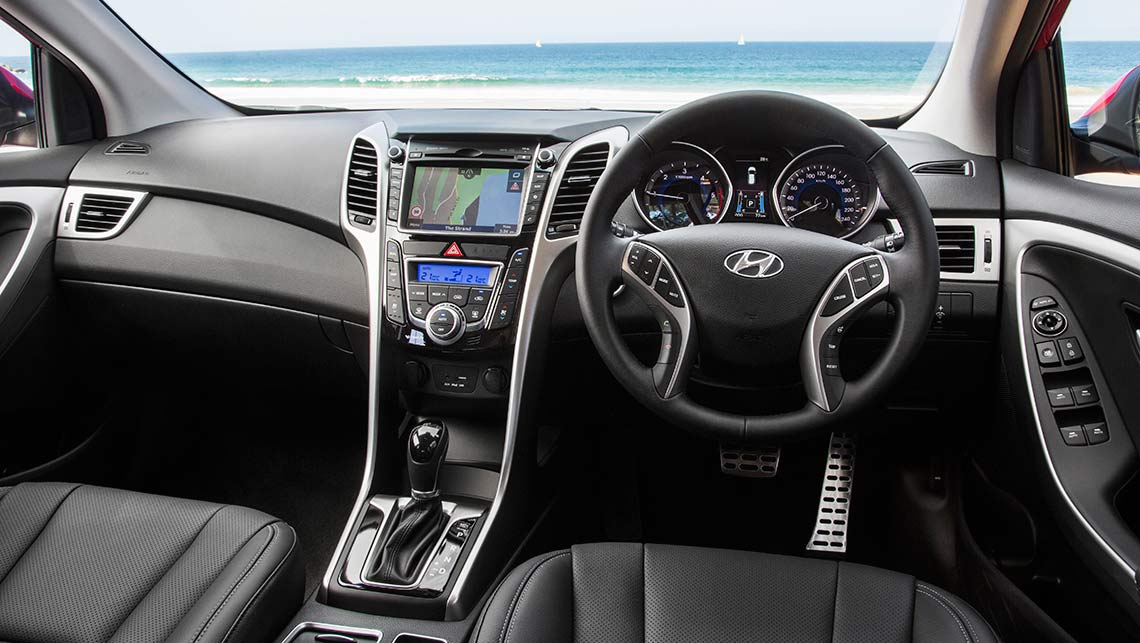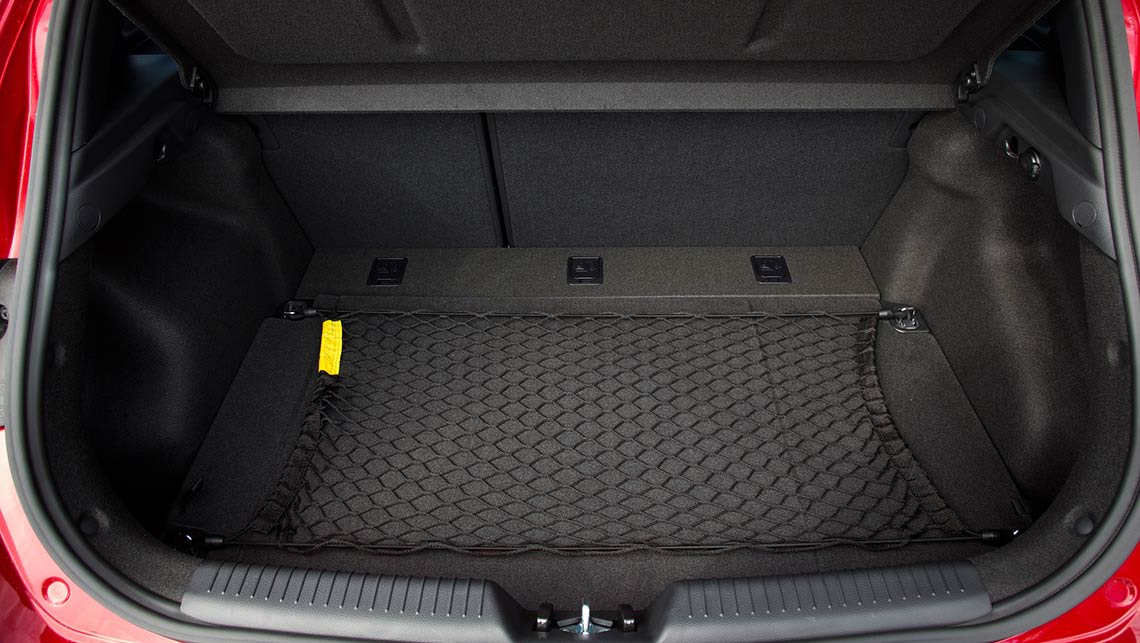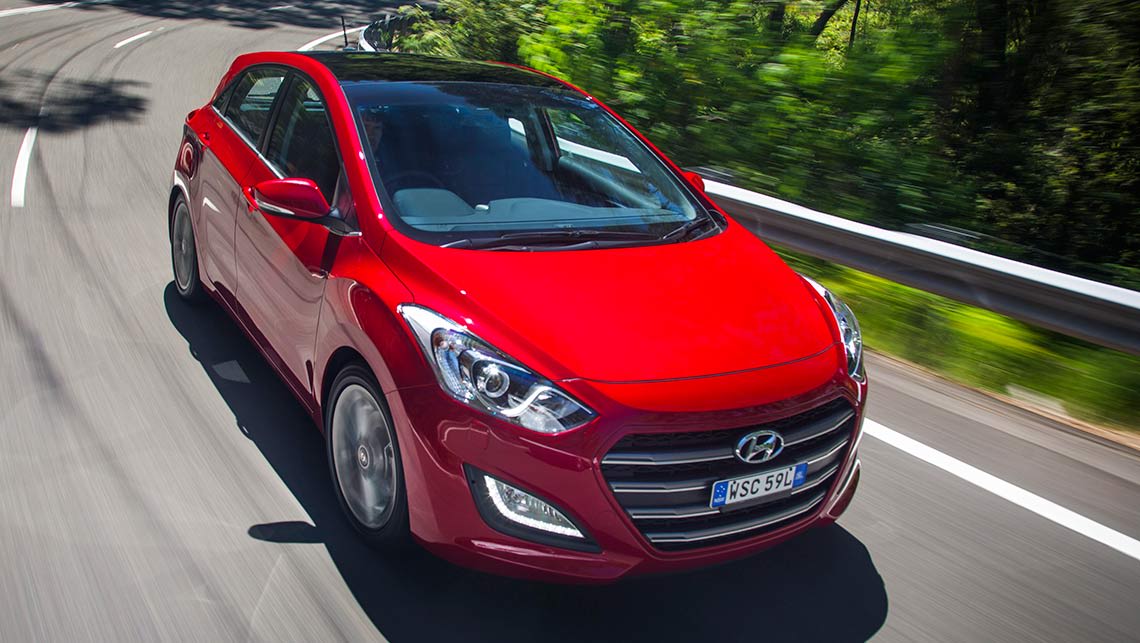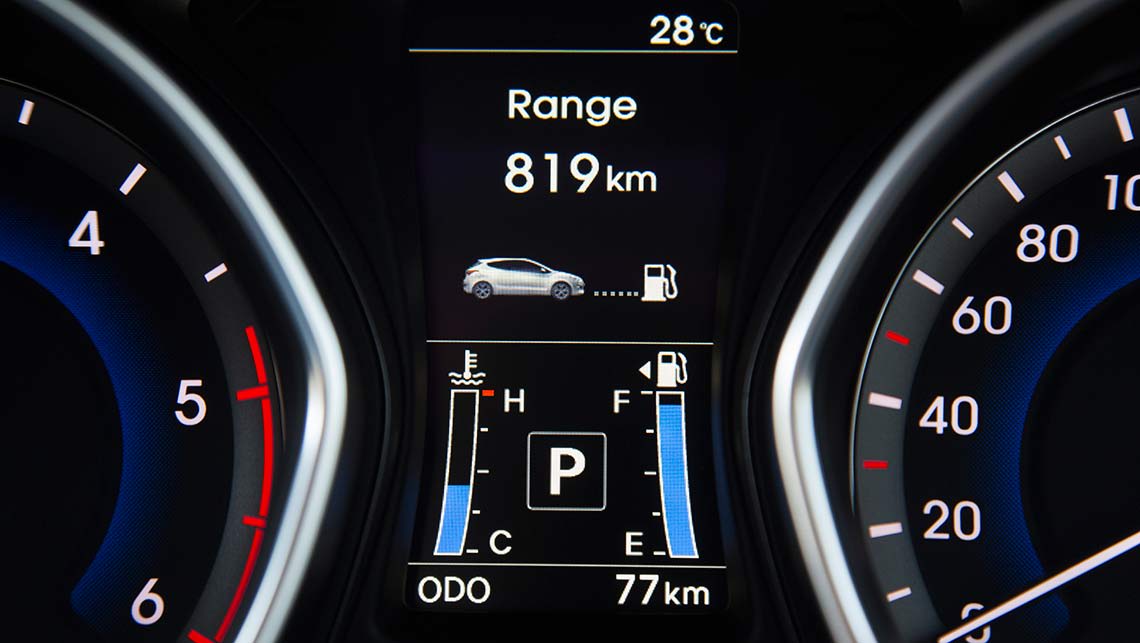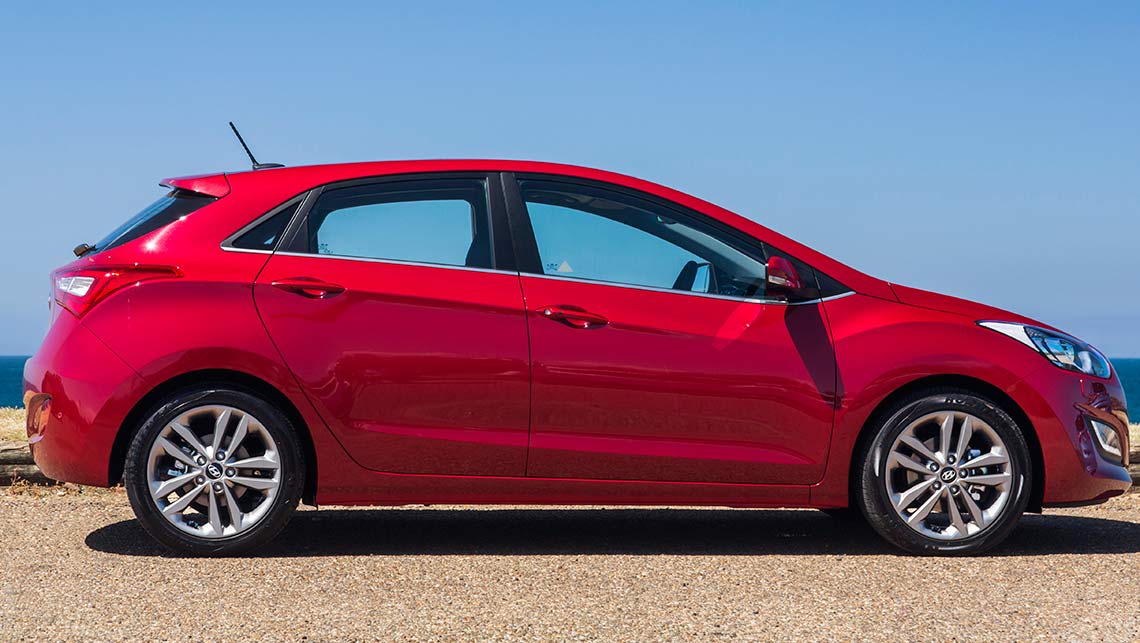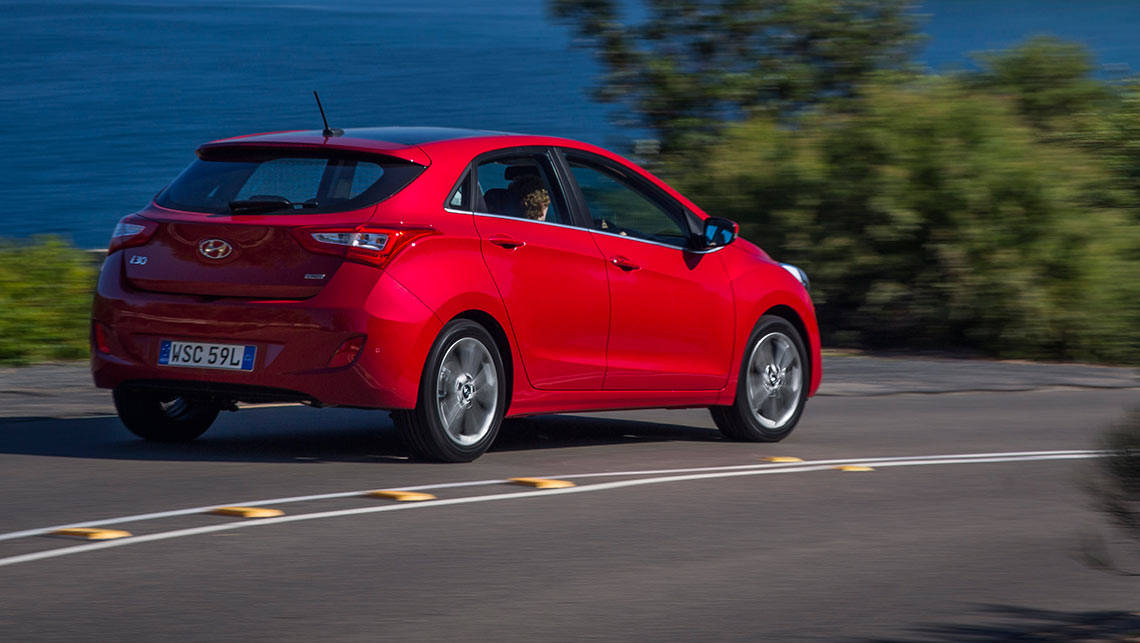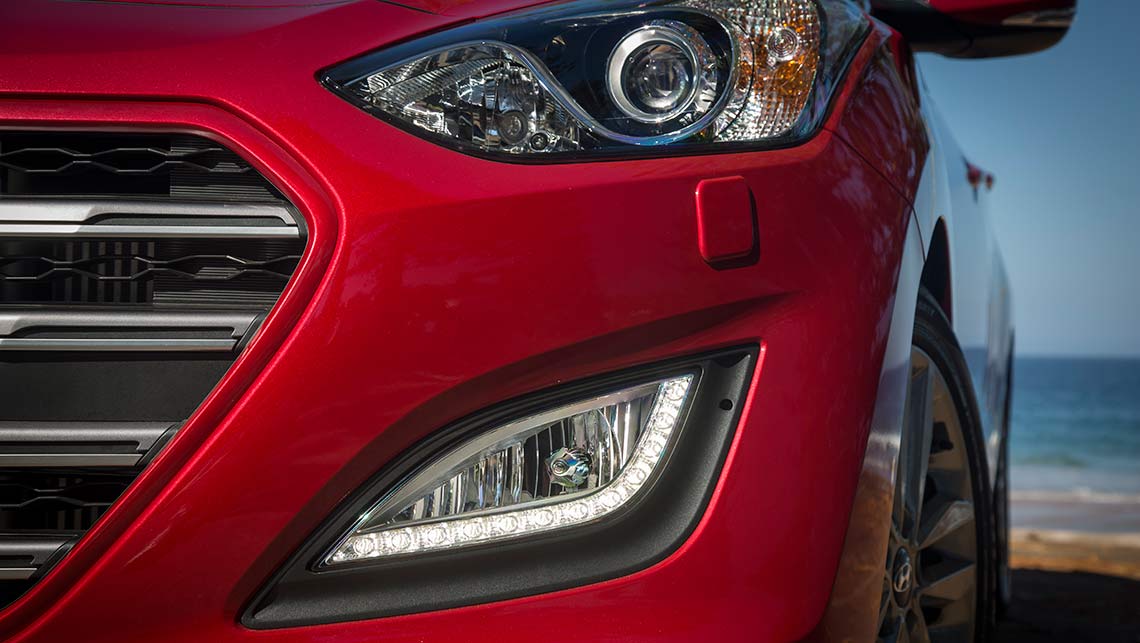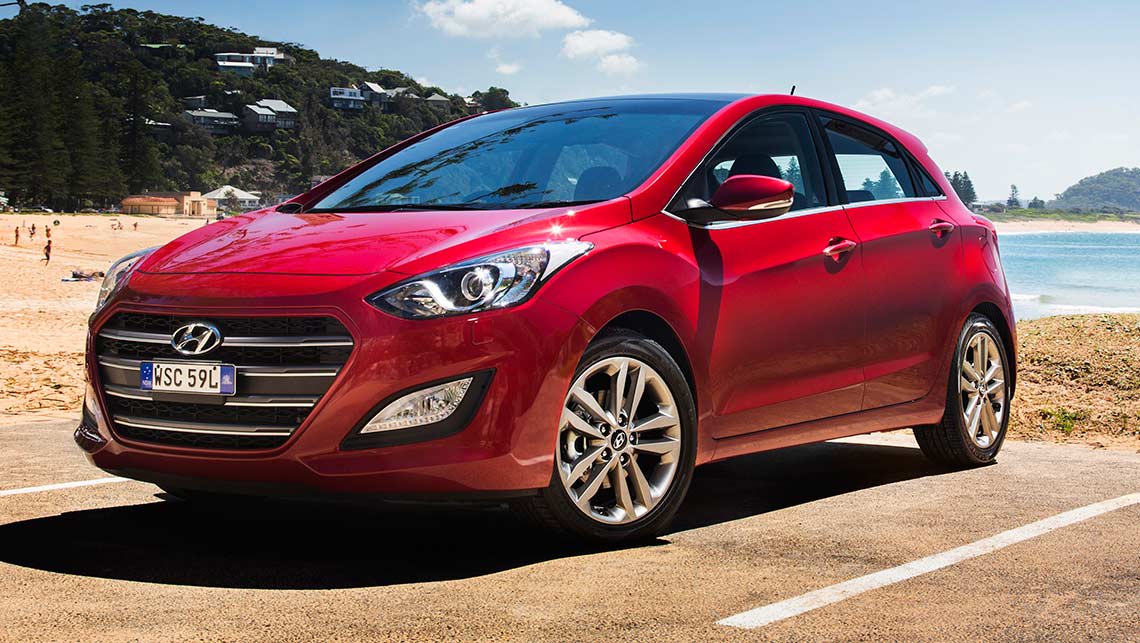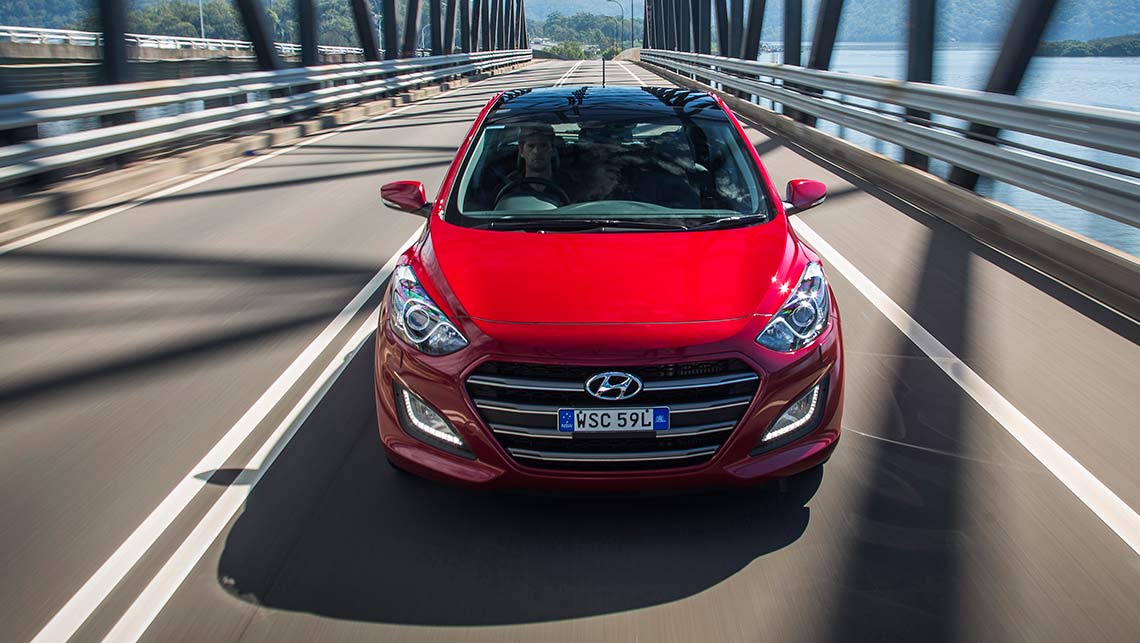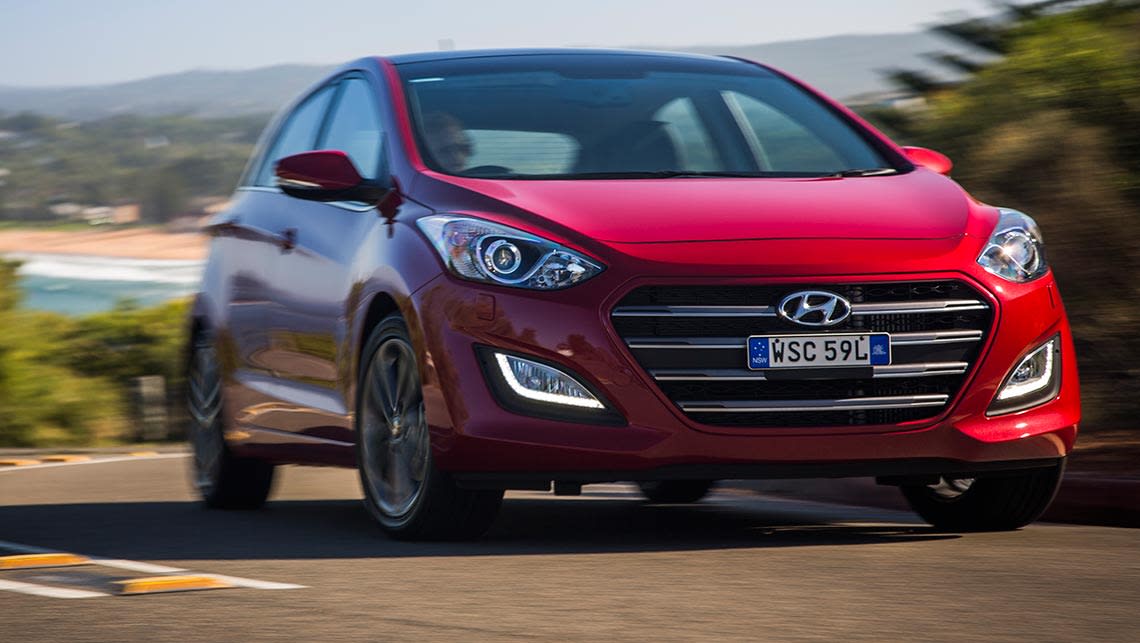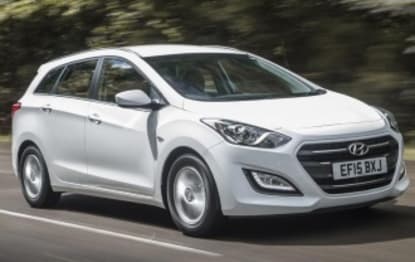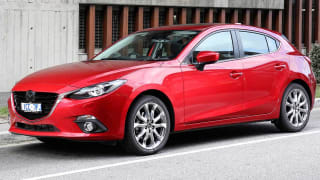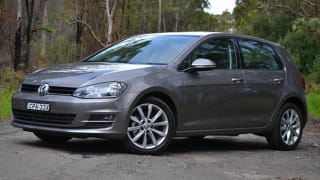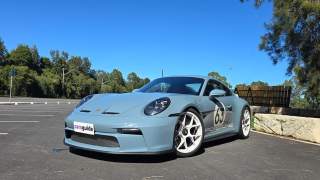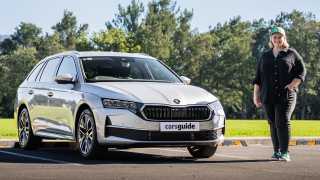Even in base form, the Korean diesel hatch is up to speed in performance, kit — and economy. Ten hours up the Pacific Highway is a great way to get to know a car.
When it's the latest diesel version of the Hyundai i30, complete with a seven-speed dual-clutch automatic gearbox, it's also a good way to see what the fuel economy is like.
The answer? An impressive 4.6L/100km, averaging 85km/h in conditions from deserted freeways to stop-start roadworks near Coffs Harbour.
My time with the i30 diesel follows the 2015-model press preview drive, where the latest (very minor) update to the top-selling Hyundai reveals a car that is in little need of work.
Apart from the driveline change on the diesel, there is a tiny tweak to the nose, a standard reversing camera for the basic i30 and a five-inch infotainment touchscreen with Bluetooth audio streaming and (for those with a big data plan on their smartphones) the Pandora digital radio app.
The preview drive of the i30 goes well as I cycle up through the range, trying both manual and automatic cars with lovely features including new alloys and ventilated front seats on the SR premium model.
The newcomer ActiveX has alloy wheels, power folding mirrors, leather trim and more.
The car drives well with the petrol engine and, for me, the ride and handling balance is among the best in the class.
Hyundai is spending wisely to have the suspension on all its cars tuned to suit local conditions.
Some others disagree but, from my experience of the SR particularly, Hyundai is spending wisely to have the suspension on all its cars tuned to suit local conditions.
With the deadline driving out of the way, it's time to head off in the i30 diesel. It's a basic car compared with the upscale models, complete with steel wheels and chromed trims that are bypassed in favour of alloys on almost every brand in 2015.
But there is Bluetooth to keep in touch and entertained and the basics are good, from the aircon and power steering to cruise control.
On that front, I quickly discover that the speedometer is wildly optimistic. When I want a "real" 110 the speedo is indicating 123, but that means I'm aiming to cover an extra 100km in my 10-hour window for the trip.
The diesel engine has been mildly tweaked with an additional 4kW but the real bonus is in the extra torque — 40Nm. With a new seven-speed DSG that's set for maximum efficiency, I'm into fifth gear by 50km/h and sixth by 60.
On the open road, the engine is barely ticking over and that's good for economy and quietness. The fuel tank holds 50L and that should get me through to my destination. I choose to refuel after a long lunch break and the economy readout is 4.4L/100km.
The economy drops with the speed in the later stages but I still think my 4.6L overall is an excellent result.
As a driver's car, the i30 is nothing special. The seats are only OK, the headlights need lots of work before they will be good enough for 110km/h illumination in our wide open spaces, and the Bluetooth is fuzzy and needs maximum volume before I can hear people at the other end of the phone.
But it's a car for a job and it has plenty of cabin space, good room in the boot and it is good enough for the price and class.
For me, the ride is very good on the trip and I quite like the handling and bump control on secondary roads.
The i30 is well priced from $19,990, with deals for most of the year to cover the on-road costs, but I'm less convinced by the diesel premium, $4000 over an equivalent petrol car - and the petrol one has a $1000 cashback deal at the moment.
I know that oil-burning engines cost more because of their higher stresses, and the new auto obviously increases the premium, but it's a turn-off for people who buy a Hyundai because it's a value brand.
We normally suggest diesels only for people who travel more than 30,000km a year, because that's the tipping point to get a return on your money, although the recent drop in price at the diesel pump prompts a new calculation.
If you drive about 15,000km a year the saving is about $500, which means it takes almost a decade to cover the extra cost of the engine.
But I'm not worried about the numbers and the calculations as I run through to the end of my drive.
